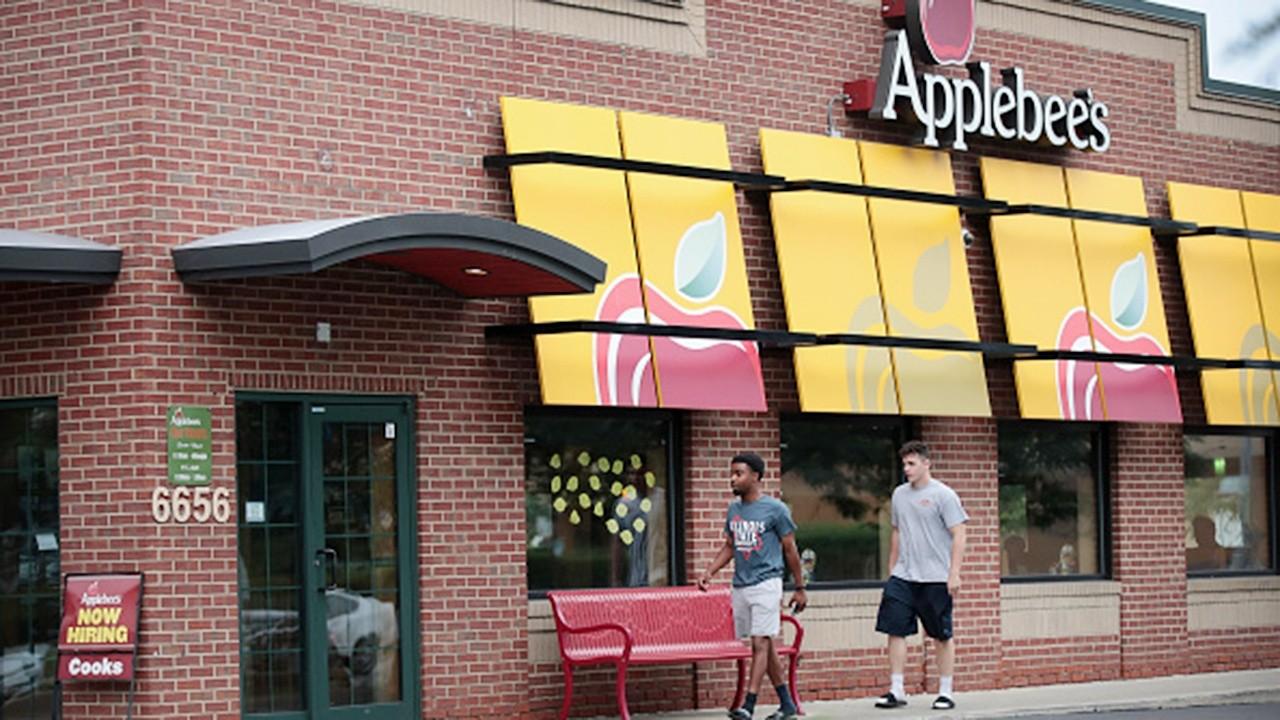Bars, restaurants want coronavirus inspired alcohol delivery to be permanent
Beer, wine deliveries were once barred in many states
The coronavirus pandemic is loosening up liquor laws in states across the country, and some restaurant and bar owners hope that rules become permanent.
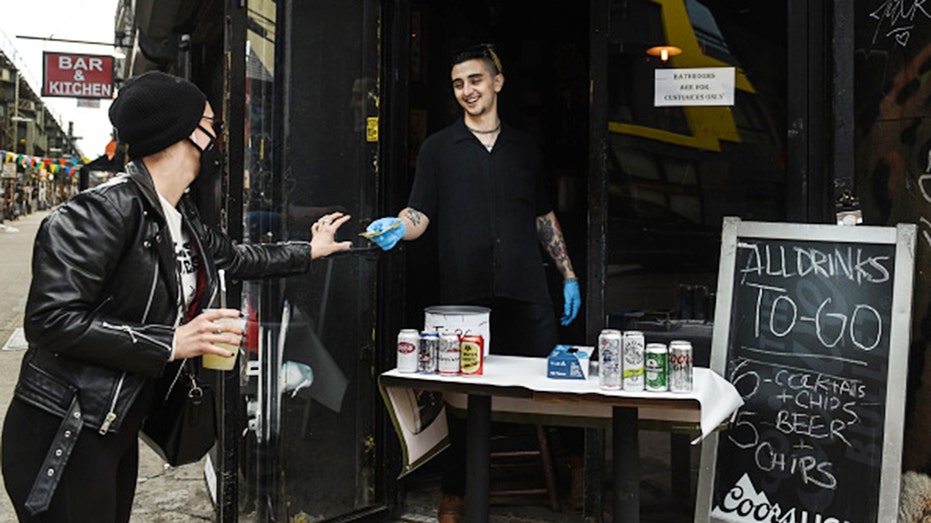
A bartender sells a frozen margarita to go to a customer in the Bushwick neighborhood on April 2, 2020 in New York City. Currently, over 92,000 people in New York state have tested positive for COVID-19. (Photo by Stephanie Keith/Getty Images)
While drinking in public is illegal in most states, some have eased up on rules allowing restaurants and bars to sell cocktails and wine for customers to carry out or order for delivery with food. And during a time when many small businesses are still only allowed to do the delivery or pick up, the extra business from alcohol sales is crucial.
Fornino, in Brooklyn, N.Y., was mandated to close its dining room mid-March along with other restaurants with stay-at-home orders in place in New York City. They’ve been selling wine and beer since they don’t have a full liquor license but owner Michael Ayoub says the booze sales have helped keep the business afloat.
“We have been selling a tremendous amount of wine by the bottle. It’s added up to a few thousand dollars extra per week,” Ayoub told FOX Business Wednesday.
But months ago, patrons of his restaurant wouldn’t have been able to carry out his homemade sangria. The New York State liquor authority in March announced new rules allowing restaurants and bars to sell alcoholic beverages to-go or with delivery as long as they are sold with food, which has been extended from its initial date of April 19 since dining rooms are still closed in the state.
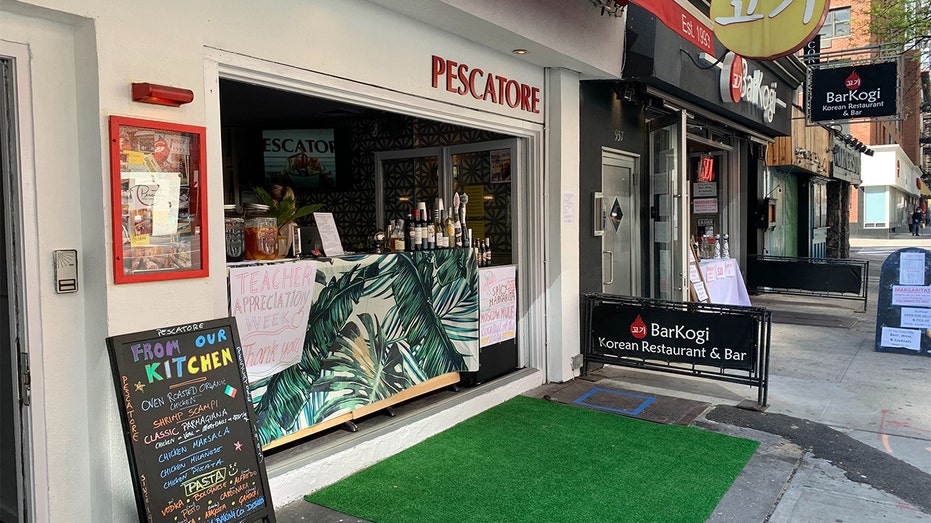
The majority of Pescatore's sales this week in Manhattan came from cocktails, wine and beer. (FOX Business).
New York City restaurateur Charles Devigne said that more than half of sales at his Italian restaurant Pescatore in Midtown came from alcoholic beverages on Tuesday when he reopened the restaurant that closed temporarily due to COVID-19. Now, staffers sell cocktails, sangria, beer and wine al fresco.
"It's been a wonderful addition, not only to the business model and to compensate for the loss of revenue, but for the neighborhood -- we have music playing, everyone has had a good reaction to it," Devigne said.
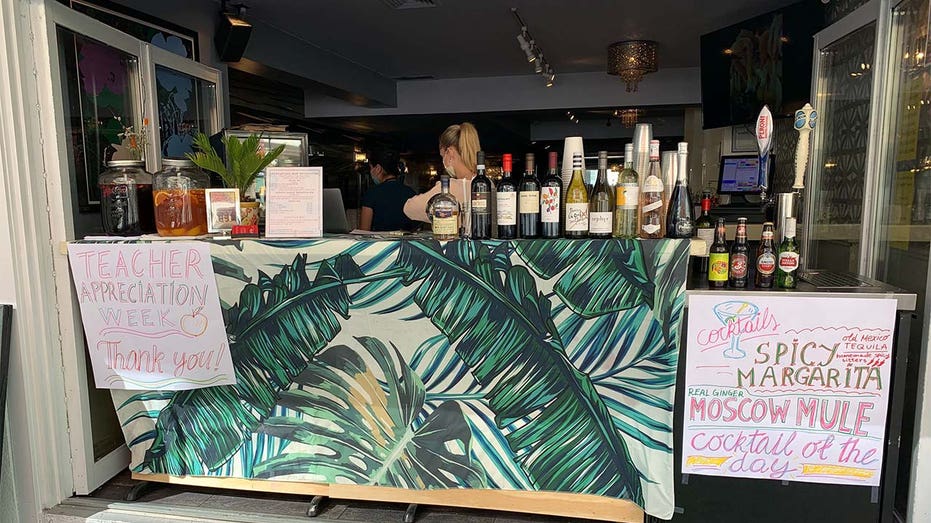
Mixologist shaking up cocktails to-go in New York City. (FOX Business).
Ayoub agrees, saying he believes the rules should be extended permanently since businesses are still struggling with the financial impact of the virus.
“I would love to be able to keep this [going] since every additional sale counts now more than ever,” Ayoub said.
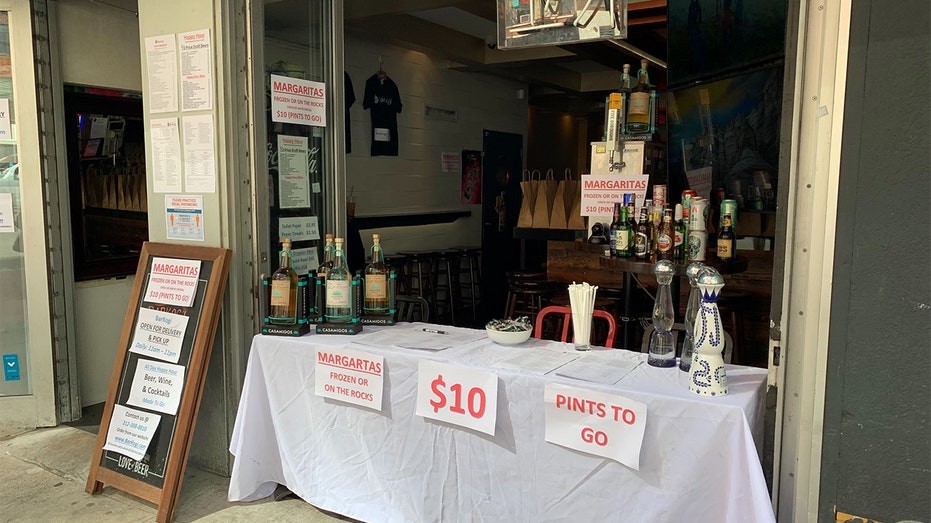
A New York City restaurant selling pints of beers and margaritas for $10. (FOX Business).
He was approved for a Paycheck Protection Plan loan, but he said it's still difficult to hire back all of his staff because his dining room is still closed.
"Business coming back to pre-Covid levels is a long way away, he said referring to COVID-19, the respiratory illness caused by the new coronavirus. "The ability to sell alcohol to-go permanently would provide some much-needed assistance in long term gross sales."
States are able to make up their own rules surrounding how alcohol can be distributed and consumed as long as the drinking age is 21. And many have issued temporary rules that make it easier for consumers to get booze. Like New York, California has also made its restrictions more liberal, letting restaurants deliver drinks with food or sell bottles of wine on-premises for pick up with meals.
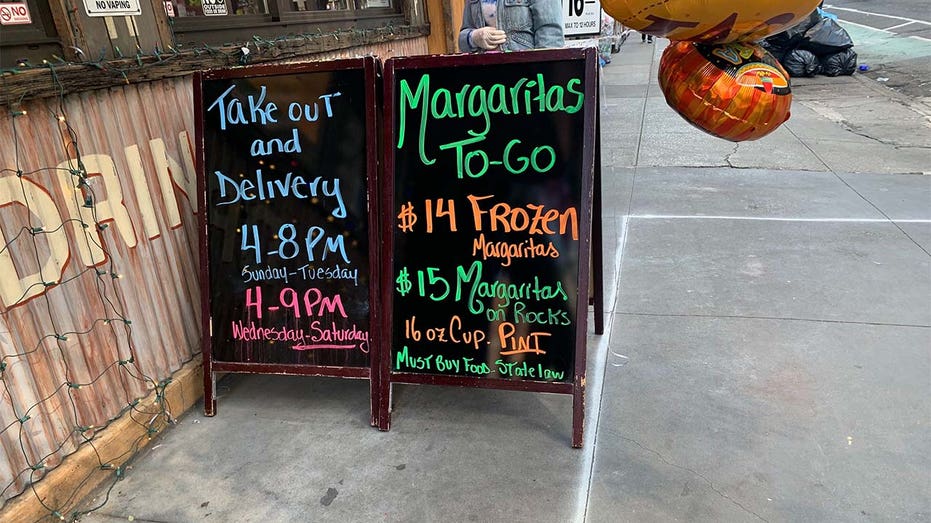
As the weather gets warm, more restaurants are taking advantage of relaxed liquor laws to earn back lost revenue from the coronavirus pandemic.
In the midwest, Chicago bars and restaurants aren’t allowed to sell alcohol in to-go cups and instead booze must be sold in a closed container, like beer bottles or cans or wine bottles. The same rule applies down south in Texas, and in Washington.
REMOTE WORK LEADS TO DRINKING ON THE JOB
“I personally love this license. I wish we could keep this license forever,” Gina Chersevani, owner of Washington D.C.-based restaurant Buffalo & Bergen told Eater of serving up cocktails to-go with menu items. Chersevani said that alcohol sales make up 20 percent of her business now.
And while businesses may need to sell booze to-go-to make ends meet in the economy's new normal it could pose negative long term effects for drinkers. People who are working from home during the coronavirus pandemic are already consuming more booze while in quarantine, according to study from Alcohol.org published last month.
Despite fewer people in public places with social distancing regulations in place, public drinking laws are still being carried out.




















